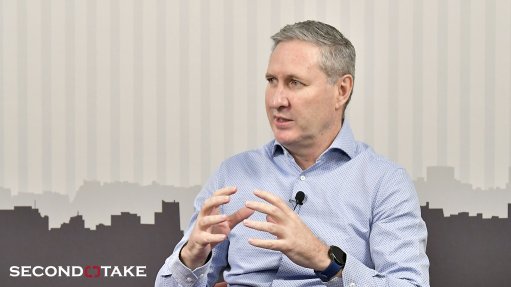How To Close the Hydrogen Skills Gap
This article has been supplied by the author and has not been written or solicited by Creamer Media. It may be available only for a limited time on this website.
By Yershen Pillay
In 2016, South Africa signed the Paris agreement on climate change at the United Nations in New York. Signing the agreement meant that the country is committed to reducing greenhouse gas emissions and collaborating with the global community to reduce global temperatures to below two (2) degrees Celsius. The problem that the country faces is how best to accelerate the reduction of carbon emissions to meet its commitments to the Paris agreement.
One way of accelerating the reduction of carbon emissions is the use of green hydrogen as a zero-emissions energy carrier. In 2021, the International Energy Agency (IEA) declared that hydrogen would be an essential source of energy for reducing carbon emissions. According to a recent report by the Hydrogen Council in collaboration with McKinsey & Company, 40 countries have developed national hydrogen strategies to tap into hydrogen’s potential to decarbonize and the industry has announced 680 hydrogen projects proposals as at the end of May 2022.
However, the emerging green hydrogen industry is facing a multitude of challenges. One significant challenge is the skills needs and training for a hydrogen-ready workforce. This pertains to both current and future skills needs and training requirements. A recent study on reskilling the green hydrogen economy found that 80% of industry employees would require new hydrogen skills and further education about electrolysers, fuel cells, hydrogen storage, and future refuelling stations. The lack of skills development and training is the biggest challenge to growing South Africa’s hydrogen economy. It’s not just accessibility to hydrogen training that poses a challenge, but actually receiving the education and skills to meet industry needs.
The main barriers to closing the hydrogen skills gap in South Africa are a lack of expertise, funding, and a lack of training facilities and equipment such as electrolyser simulators. For this reason, more needs to be done to develop South Africa’s education infrastructure and physical infrastructure to support both current and future demand. If we are unable to develop this infrastructure in the next five years, we may miss the opportunity to be a leader in this rapidly growing industry. We need to plan now for the future growth and expansion of hydrogen energy.
In the future, a more comprehensive assessment of skills requirements will be needed. The current desktop modelling places a greater emphasis on engineering qualifications with extraordinarily little attention paid to occupational qualifications. Hydrogen safety training has been less of a priority, yet safety skills programmes will be a vital part of hydrogen education. Hydrogen can be an extremely dangerous gas to work with as it is highly flammable and hence appropriate training is essential.
In attempting to close the hydrogen skills and training gaps in South Africa, research by the Chemical Industries Education and Training Authority (CHIETA) has identified 17 specific training and skills requirements. Approximately 14 000 jobs are likely to be created including hydrogen systems engineers, technicians, gas fitters, and other associated trades and services.
The technical and regulatory uncertainties in South Africa provide a major challenge for effective skills planning. For this reason, leadership needs to be provided for enabling policy and regulatory changes. The education sector needs to work more closely with industry for joint skills planning and the co-creation of future training courses and learning materials. What is needed is more cross-sector collaboration and research development by engaging with industries such as transport, mining, manufacturing, energy, infrastructure, and agriculture.
South Africa lacks the cross-sector collaboration to support skills development and training on green hydrogen. Cross-sector collaboration and joint skills planning between government, the private sector, and training authorities should be an apex priority for a hydrogen-ready workforce. Without cross-sector collaboration, a fragmented and piecemeal training landscape may evolve in which hydrogen training is expensive, exclusive, and inaccessible to all.
Digital skills are the foundation for hydrogen skills. For this reason, South Africa needs to prioritize digital literacy skills programmes. A coherent digital literacy skills curriculum is required for hydrogen education. To this end, CHIETA has prioritized digital literacy skills by launching SMART Skills Centres across the country. CHIETA SMART Skills Centres provide free digital literacy skills programmes including experiential learning using virtual reality technology for certain occupations. This first-of-its-kind SMART centre in Saldanha Bay has been opened to the public since the 1st of February this year. Eight new centres are planned over the next two years.
The biggest risk facing South Africa is the inability to seize the moment and implement green hydrogen at scale because of the lack of adequate skills and appropriate expertise. To mitigate this risk and close the hydrogen skills gap in South Africa requires a multipronged strategy that includes better coordination from government, cross-sector collaboration with industry, digital literacy programmes, and specialised training on electrolysers, fuel cells, and hydrogen systems. The relevant expertise will have to be sourced to develop and deliver the training required by the industry. The country needs an explosion of training to become a leader in the global hydrogen economy.
Comments
Press Office
Announcements
What's On
Subscribe to improve your user experience...
Option 1 (equivalent of R125 a month):
Receive a weekly copy of Creamer Media's Engineering News & Mining Weekly magazine
(print copy for those in South Africa and e-magazine for those outside of South Africa)
Receive daily email newsletters
Access to full search results
Access archive of magazine back copies
Access to Projects in Progress
Access to ONE Research Report of your choice in PDF format
Option 2 (equivalent of R375 a month):
All benefits from Option 1
PLUS
Access to Creamer Media's Research Channel Africa for ALL Research Reports, in PDF format, on various industrial and mining sectors
including Electricity; Water; Energy Transition; Hydrogen; Roads, Rail and Ports; Coal; Gold; Platinum; Battery Metals; etc.
Already a subscriber?
Forgotten your password?
Receive weekly copy of Creamer Media's Engineering News & Mining Weekly magazine (print copy for those in South Africa and e-magazine for those outside of South Africa)
➕
Recieve daily email newsletters
➕
Access to full search results
➕
Access archive of magazine back copies
➕
Access to Projects in Progress
➕
Access to ONE Research Report of your choice in PDF format
RESEARCH CHANNEL AFRICA
R4500 (equivalent of R375 a month)
SUBSCRIBEAll benefits from Option 1
➕
Access to Creamer Media's Research Channel Africa for ALL Research Reports on various industrial and mining sectors, in PDF format, including on:
Electricity
➕
Water
➕
Energy Transition
➕
Hydrogen
➕
Roads, Rail and Ports
➕
Coal
➕
Gold
➕
Platinum
➕
Battery Metals
➕
etc.
Receive all benefits from Option 1 or Option 2 delivered to numerous people at your company
➕
Multiple User names and Passwords for simultaneous log-ins
➕
Intranet integration access to all in your organisation



















